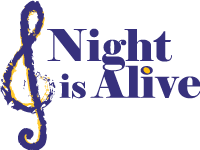
Music, in its most elemental form, is a sequence of vibrations that produce an emotional response in the listener. These vibrations happen at different and unique frequencies, each touching us emotionally in different ways. Some music makes us angry as hell ready to scream back at the world or make us weep at how fragile life is. Music connects us with ourselves, even if we are not ready to be connected. Music has such meaning that it brands itself into our mind and memory. While the research is new and only just beginning to gain speed, studies on music and its influences on dementia to advanced-stage Alzheimer’s shows definite promise.
Alzheimer’s Disease is the most common form of dementia in the United States today. The wide-reaching impacts of the disease have many hoping to find a cure to help those suffering. While nothing has been found to reverse the advancement of the disease, music therapy is showing hope. Music can be used to tap into emotions and feelings that can bring a patient to a positive place. They find a home-base within the music. What studies have revealed is listening to music or even singing songs can provide benefits not only emotionally but also behaviorally. Research also indicates that the parts of the brain that music is focused remain, for the most part, undamaged. Musical memories are often preserved in people with Alzheimer’s Disease and other forms of dementia. The emotion that surrounds music imprints the human experience. These emotions are so powerful they are able to grasp these memories from the past. The music is the bridge to yesterday.
Experts agree that music can improve overall behavior, emotional well-being, and reduce anxiety in patients. These found benefits are where the science is going. Recently published research by the US National Library of Medicine at the National Institutes of Health found that Music Therapy could be seen as a non-pharmacological benefit to those with dementia and Alzheimer’s disease. “Researches have demonstrated that MT can protect cognition of AD, especially autobiographical and episodic memories, psychomotor speed, executive function, and global cognition.”(USLM). Recommendations were also made to look at the effects that other forms of art can have on the brain, memory, and cognition. The study also found that the type of music was also very important. Music that was specific to the patient’s past had the most significant response. Patience needed that emotional association with the music to have a meaningful impact. The patience’s that had a stronger connection to music earlier in life benefited the most. Singing also was shown to have a lasting effect for sustaining cognition, especially when started before the first signs of the disease.
There is still so much to uncover about Alzheimer’s and other types of dementia. Science and the Arts are finding surprising ways to overlap and bring health and comfort to those affected by dementia and Alzheimer’s. There is still additional research and studies to develop the science, but the present-day results are encouraging. In the science of prevention, much more information is available on decreasing the chances of developing Alzheimer’s and other forms of dementia. The science shows clearly that a lifestyle where exercise, good food selections, and a lack of smoking has shown the best chance for not developing the disease. For those that develop this unfortunate disease, music can still be a gateway to memories lost.
Michael Brigger
Reference:
Fang, R., Ye, S., Huangfu, J., & Calimag, D. P. (2017). Music therapy is a potential intervention for cognition of Alzheimer’s Disease: a mini-review. Translational neurodegeneration, 6, 2. doi:10.1186/s40035-017-0073-9






